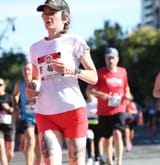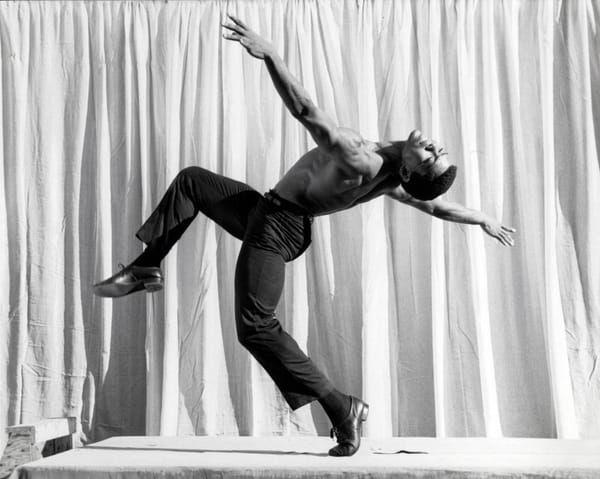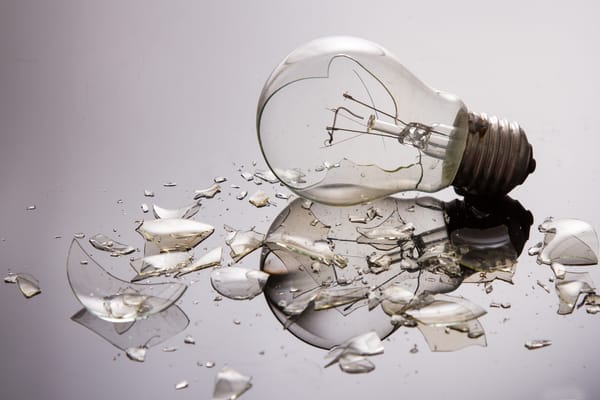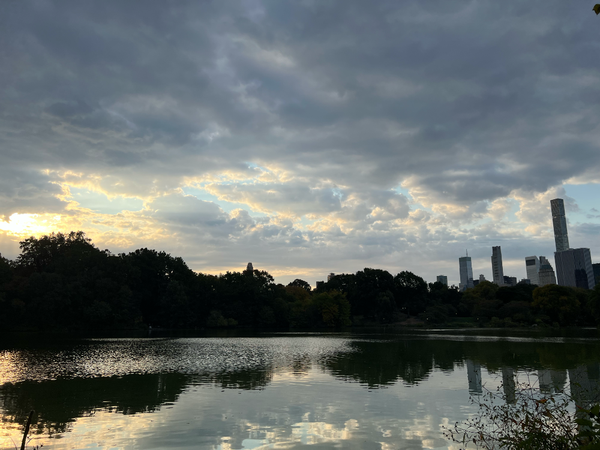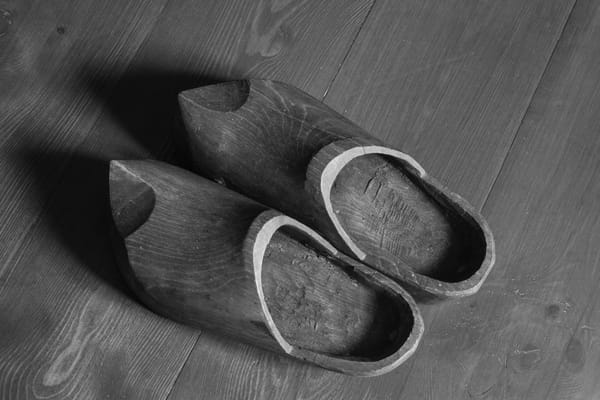What's Good
What I Read During "Taper Week"
It's Week 2 of the soft launch of Second Breakfast. I don't plan to officially launch quite yet, but putting out this newsletter two weeks in a row is a solid step in that direction. It's a solid step towards forming a new habit, and as we know, habits are behaviors that… oh shit… behaviors. There's no escaping B. F. Skinner for me, is there. Well, that's a topic I'll put aside for a longer essay.
The Friday issue of Second Breakfast is available to paid and free subscribers and will primarily consist of links to the things I've read — good and bad — throughout the week, primarily on the subject of food, fitness, and health technologies. "Links" typically means "things I've read online," but as I'm trying to spend as much as time as possible *not* online, there will be reviews of and references (and maybe affiliate links, I don't know yet) to books.
Arguably, breakfast is the meal where reading at the table is culturally sanctioned. So let's pretend it all fits together neatly. (And maybe it all will by the time I officially launch this publication. Soft launch, remember?)
I'd imagined that the Friday newsletter would be a short one — it's not an essay — but it seems as though I had more to say about something I read this week…
I was very excited to receive my copy of Jenny Odell's brand new book, Saving Time, on Tuesday, its publication day. As an author, I know how important it is to pre-order books and signal to the publisher/distributor that there's an audience for it, so when an author I like announces their book is available for pre-order, I try to be a dutiful consumer/supporter and follow through. I was over-the-moon when I heard Odell had a new book coming out — How to Do Nothing is one of my favorite books written about The Internet (the other is Tim Maughan's novel Infinite Detail) — and I think I pre-ordered it some six months ago. Sometimes I forget that I've done this, and when a book shows up on its publication day, it's a wonderful surprise. But I knew Odell's book was coming this week; I hurriedly finished the last book I was reading so that when the package arrived on Tuesday, I could dive right in.
It was a good week for a new book by Odell; this week, I'm supposed to be doing nothing. It's "taper week" — just a few more days before I run my first half marathon, and my frenetic running schedule has been dialed way way back to give my legs a chance to recover a tad before I push them to carry me through 13.1 miles. But while my body is ostensibly resting, my brain is buzzing with anxiety about the race — about the distance, my pace, the weather, my strategy, my shoes, my hydration, my fuel intake, my clothes, and on and on and on.
So, there's a deep irony to my reading Saving Time this week, a book about the tyranny of time. That is to say, while I'm supposed to be resting and relaxing, I'm non-stop obsessing about the race and the clock and all the metrics associated with it: pace, speed, efficiency, endurance, strength. Running is leisure, and yet it's plain to see the ways in which it is shot-through with the same sorts of values of work, of capitalism: an obsession with engineering and managing bodies in motion. Indeed, I have willingly trained my body to bend to these values, to excel at these values; and this is fun for me (and for millions of others). This is how I spend my "free time" — timing and measuring myself. "Discovering a Life Beyond the Clock" is the subtitle of Odell's book, and I want to nod along with her and shake my fist in righteous solidarity, but this week, I'm desperately hoping I can discover the life of a sub-2-hour half marathon.
We're all caught up in just these sorts of messes.
Surely some of my own mess colored my reading of the book — which, as I have been lying on the couch a lot this week, I confess, I blew through pretty quickly. A rather dour review from The New Yorker which called the book a "time sink" and seemed to feel was a waste of the reader's time, but I had a lot of time this week — something that should be interrogated in its own right, for sure — and it didn't feel like a slog to read. And yet, midway through, I thought with a frown that I wasn't enjoying it nearly as much as I did How to Do Nothing. That's not to say I didn't enjoy it at all — I did. But I found the book unsettling in many ways, some of which are, funnily enough, the stylistic features that made How to Do Nothing so endearing — Odell's movement from space and place to philosophy and politics. It may be that Odell was unsettled herself in writing it; her curiosity seems more tentative, more fragile; her insights seem more tentative and also more frazzled.
Perhaps Saving Time was difficult for me because it me grieve for another time — the book isn't nostalgic, but there are sure moments when I am. I couldn't help but think about the time when I was reading her first book, not knowing how a few months later my life would be torn apart.
We lived in Seattle when I read it. Funnily enough, it wasn't until I insisted that Kin read it, months later, that it really sunk in how much of How to Do Nothing is centered on Oakland, on Lake Merritt — our beloved lake that he and I walk around each morning and around which I most often run and on the rose garden therein. I'd never been to Oakland before we moved here in April 2020; I'd never seen a black-crowned night heron. Indeed, it wasn't until we started our daily pre-dawn walks that I finally did. Odell says her boyfriend describes them as "a cross between a penguin and Paul Giamatti." I think of them as kin to the Kodama in Miyazaki’s Princess Mononoke, the spirit creatures of Lake Merritt and a bellwether of the lake's health. How to Do Nothing is frequently a touchpoint for Kin and I — we see our walks as part of the way in which we try to see the world, try to move through the world differently, to a rhythm not dictated by the digital.
Then too, when I read How to Do Nothing, my world was different not just in place but in how it was populated. Isaiah was alive. I was a different person.
Pre-pandemic, I suppose we all were.
As I read Saving Time, it struck me that Odell and I must've read many of the same books during the pandemic — histories of clocks and of time management (Oliver Burkeman's brilliant Time Management for Mortals), a little Hannah Arendt. Maybe I'm a more generous reader than that New Yorker reviewer because I'm in a similar position to Odell — a writer wondering what the hell to do next who turned to the same set of texts to think through all the loss around me. I haven’t quite been able to piece things together in much of a sensible fashion, I admit. Then again, I’m not sure Odell has done either.
And now, like Odell, I live in the East Bay. I too experienced that day in September 2020 when the sun never rose, the sky clung to its weird orange glow as the fog and cloud cover and forest fire smoke kept the daylight — all day — at dusk. "News and social media for the rest of the day would be apocalypse porn, an entirely orange time line. Here was Orange Bernal Hill. Orange Transamerica Pyramid, Orange Port of Oakland. Depending on where and when you are reading this, such an occurrence may not be an anomaly, but at the time, it felt unprecedented." Daylight was "cancelled," but as Odell wryly notes, the work day was not — the time-clock still demanded the punch.
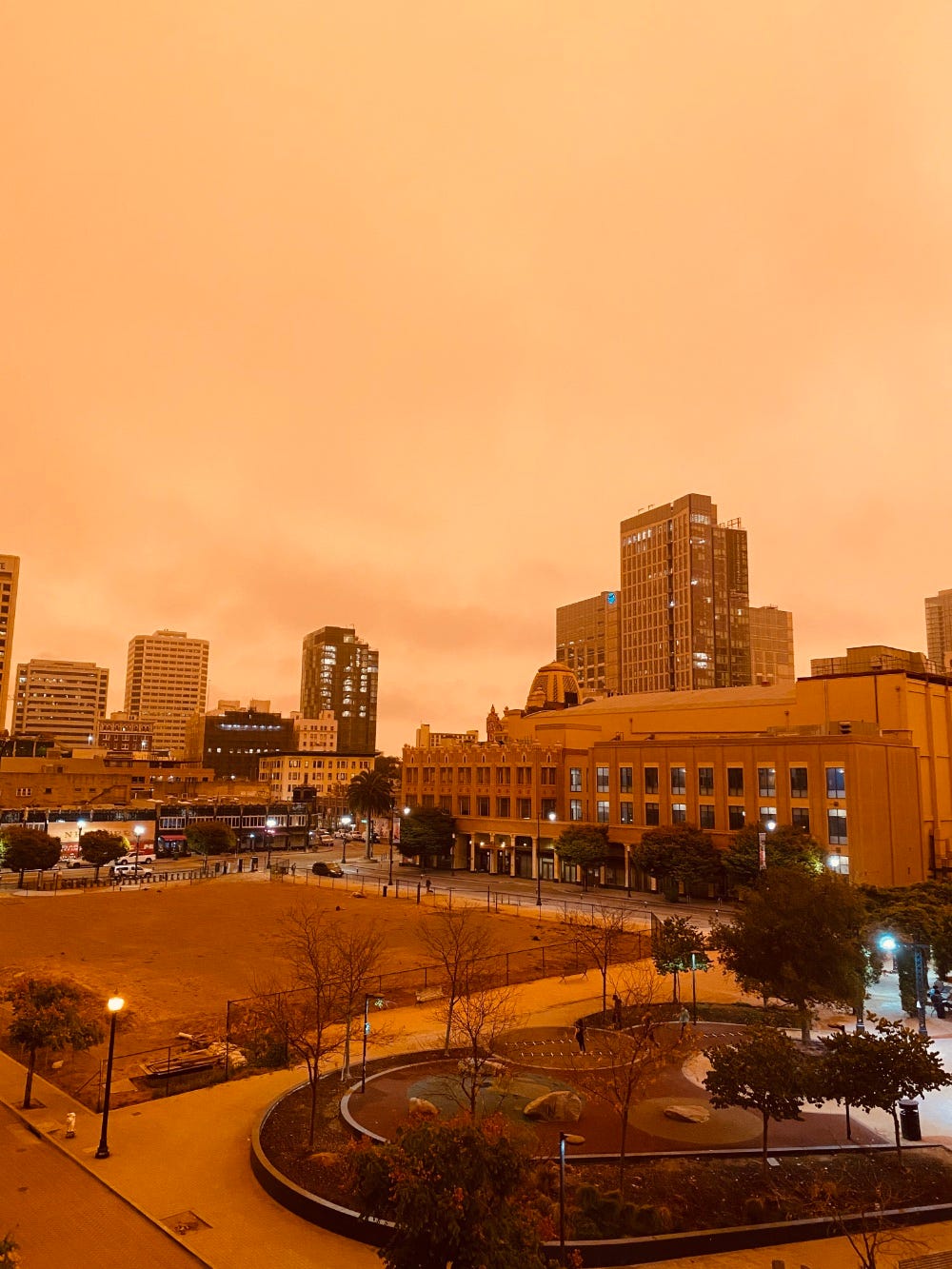
Odell's book deals with our struggle to grapple with both the clocks that threaten our physical and mental health on a day to day basis — the exploitation of capitalism and imperialism — as well as the time pressures of climate change and the environmental apocalypse that isn't simply impending but that, for many people, is already here. "Being able to connect one's own personal experience of time to the experience of a collapsing climate clock is no mere mental exercise," she writes, "but a matter of urgency for everyone involved. The only way to address the pain is to fundamentally change what we are doing." This change, Odell argues, might be possible if we reimagine time — more kairos and less chronos, to use one framework; more moss and volcano (to draw on a couple of ecological references Odell uses) and less spreadsheet and task management system.
The stakes seem much higher in this book than in Odell's first: "resisting the attention economy" is still of pressing importance, no doubt, but when it involves meandering through gardens and befriending birds, it seems much more pleasant, more dare I say "leisurely" than "discovering a life beyond the clock" as we teeter on the edge of environment devastation, the vast majority of us having no time or money for "leisure" (and then when we do it takes the form of a marathon — WTF).
That orange sky in September 2020 did look like the apocalypse; it was quite literally hard to breathe that day; but for me, the end of the world came months earlier, in May, when I learned my child had overdosed and died.
"The world is ending — but which world?" Odell asks. "Consider that many worlds have ended, just as many worlds have been born and are about to be born. Consider that there is nothing a priori about any of them. Just as a thought experiment, imagine that you were not born at the end of time, but actually at the *exact right time*, that you might grow up to be, as the poet Chen Corn writes, 'a season from the planet / of planet-sized storms." Hallucinate a scenario, hallucinate yourself in it. Then tell me what you see."
Honestly, I'm not sure that I can.
There've been a flurry of books about grief published since the pandemic; no doubt, because of how long it takes to write and publish a book, there are many many more on the horizon. It's not a surprise that Odell's book would be one of them, as any book about time must grapple with death and dying, with our own temporality.
Grieving isn't simply an individual act or an individual loss — such is the trick that both chronos and capitalism try to play; rather this should be our collective act. Many books about grief are deeply unsatisfying — for me at least — because they are written as though suffering is individual, not structural, not shared. I don’t want “self-help”; I want a radically different world. Odell’s book tries to write us there: "The present cannot and should not be borne alone. Grief, too, can teach you new forms of subjecthood. I think of a kind of double-ness a mutuality with the power to witness and not turn away. That which pulls me through to another day has always been another body, whether that of a friend, a flock of birds in a shrub, or the east-facing side of my favorite mountain. I draw near them, draw from them some kind of *something* that doesn't quite reside in me. A review of How to Do Nothing once said that I 'employ(ed) the annoying term "bodies"' when clearly I must have meant people or humans But I don't mean 'people' or 'humans.' I mean *bodies*: double bodies, triple bodies, alliances and amalgamations that can shift and bear the weight, brace the walls. This moment requires that we be pressed together, pressed against the world. Now is not the time to turn your back on the ocean."
I’ve long felt I got the timing of things all wrong in my life, having done many important Life Events out of order: I got pregnant before I was married; I had a baby before I finished college; I was widowed before I was 40; my child died before I did. But I’m skeptical that "discovering life beyond the clock" would lift the heartache bound up in this. To be fair, I don't think Odell is arguing that it would magically do that. But as I read the book, so bound up in my own thoughts about clocks and pacing and racing and time — a sub-2 hour half marathon, can I do it?! — I didn't really feel as though Saving Time articulated why, after such grief and loss, trying to seize time might give someone great comfort and why letting go of time might feel even more risky.
Elsewhere in the technology of food and fitness (and the stories we tell about the future of such things):
- "Chuck E. Cheese Still Uses Floppy Disks To Make Its Rodent Mascot Dance — For Now" — food + technology content par excellence.
- Annie Murphy Paul has a new newsletter on the "science of creativity." I enjoyed her book The Extended Mind: The Power of Thinking Outside the Brain immensely, and her newsletter picks up on several threads from there.
- What is the future of "milk"? There's lots to unpack here (and as a cultural staple of the breakfast meal, you can bet I'll have lots to say about milk in this newsletter). Interestingly, there were a lot of stories about “milk” this week, which is always a signal that something’s up. From The New Yorker: "Biomilq and the New Science of Artificial Breast Milk." From The Washington Post: "Moooove over: How single-celled yeasts are doing the work of 1,500-pound cows."
- Speaking of breakfast beverages, "I Love Coffee, but I Gave It Up for MudWtr. Don’t Make My Mistake."
- Via The Wall Street Journal: "A Supermarket Megamerger Will Redefine What You Buy at the Grocery Store." There is going to be so much grocery store content in this newsletter. Just to warn you.
- Matthew Desmond has a new book coming out soon. A preview in The New York Times: “Why Poverty Persists in America.” You can't talk about the future of food or fitness or health without talking about structural inequality. Oh wait, you can! That's called being an "influencer."
- "Inside New Balance’s Plans to Topple the Global Sneaker Hierarchy" — shoe technology. I won't lie, it's top of mind for me lately. I've been running my long runs in New Balance shoes, but I’ve never really paid much attention to the cultural narratives around any other brand of shoes but Nikes. GQ says that New Balance are no longer uncool… so there you have it.
- And there is perhaps no body that better epitomizes fitness and the future than Arnold Schwarzenegger's. Except for the part where that body is now 75.
I'm all here for our redefinition of the aging body, for sure. I've just got to trust that I've trained mine adequately for this weekend's trials. I mean, it's got me through much, much harder shit so far.
Yours in struggle,
~Audrey
* I am experimenting with affiliate links in this newsletter. I'm not sure if I'll continue, but I'll always let you know if you're going to click on something that might earn me a buck.

